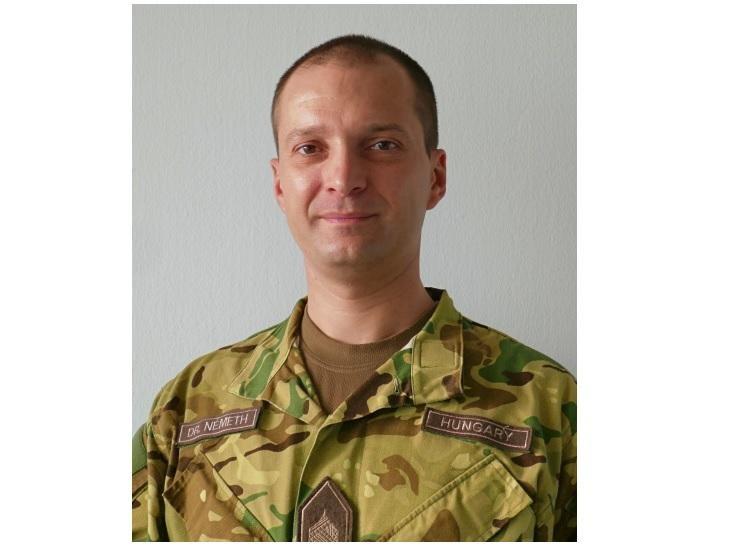Department of Electronic Warfare
Head of Department: Lt. Col. András Németh, PhD

Lieutenant Colonel András Németh graduated in Budapest University of Technology and Economics as electrical engineer and as holder of a military scholarship in 2002. He was promoted second lieutenant on the 20th of August the same year. His initial assignment was an assistant lecturer at Signal Department of Bolyai János Military Technical Faculty of Zrínyi Miklós National Defense University. In 2008, he obtained his PhD degree at the Doctoral School of Military Engineering of the above mentioned University. During his 17 years in military higher education, he served in various teaching positions and military assignments, including a mission in Egypt. Major Némeths’s scientific and teaching activity covers the following areas: military electronics, emergency communication systems, radio frequency and microwave systems, tactical radio systems, unmanned aircraft systems, the modern instruments of military archeology and their applications.
Contacts:
Office: H-1101 Budapest, Hungária krt. 9-11. Zrínyi Campus, Building ‘A’, Room 836.
Phone: (36) 1 432 9000/ 29224
E-mail: Nemeth.Andras@uni-nke.hu
About the Department
The Department of Electronic Warfare was established in 2015. Its first great challenge was to redesign the structure and requirements of the specialisations belonging to the unit. Since autumn 2013, students have been admitted to the area: radio-electronic reconnaissance and electronic warfare. The ultimate goal of the Department is to train officers to be able to operate the radio-electronic reconnaissance and electronic warfare systems of the Hungarian Defence Forces, to direct and operate maintenance processes and to fulfil medium-level executive positions.
The students, teachers, and researchers of the Department are active participants – and in many cases the organizers – on/of numerous scientific conferences (for example, in Hungary, we need to mention the “ROBOT WARFARE” conferences and other events of the Hungarian Association of Military Science). We focus on the ERASMUS+ Program, and use this framework, we send and host students and professors from different countries (for example, Poland, Slovak Republic, Romania). Beyond this, we have extensive international relations with other countries and associations.
The students’ scientific research activity mainly goes in the framework of Council of National Scientific Students’ Associations and focuses on robotics, electronic warfare, defence against RC-IEDs, etc. The Department takes part in many international efforts, mainly through Research and Development works.
The research areas of the Doctoral School of Military Engineering are based on master level education of the Department. The main research areas are as follows: Military Technology and Robotics, Defence Electronics, and ICT.
Research areas of the Department:
- cyber defence strategy planning;
- network-centric warfare;
- information warfare, information operations, and cyber terrorism;
- strategic communication;
- protection of critical information infrastructures;
- UAVs, tactics, and techniques;
- military robotics;
- modern electronic warfare systems, software-defined radios in radio monitoring and jammer systems;
- protection against radio-controlled improvised explosive devices (RCIED);
- participation in scientific research & development programs;
- participation in doctrine development MoD workgroups (Electronic Warfare Doctrine of HDF);
- involvement in different subprograms of the Social Renewal Operational Program, realised through the assistance of the European Union, with co-financing from the European Social Fund.
Degree programmes in Hungarian:
Bachelor level (8-semester long programme) – BSc in Military Maintenance for candidate military officers – Signal intelligence and electronic warfare.
Masters level (2-semester long programme) – MSc in Military Maintenance for military officers
Masters level (4-semester long programme) – MSc in Defence Infocommunication System Management for civilian and personnel from the defence sector